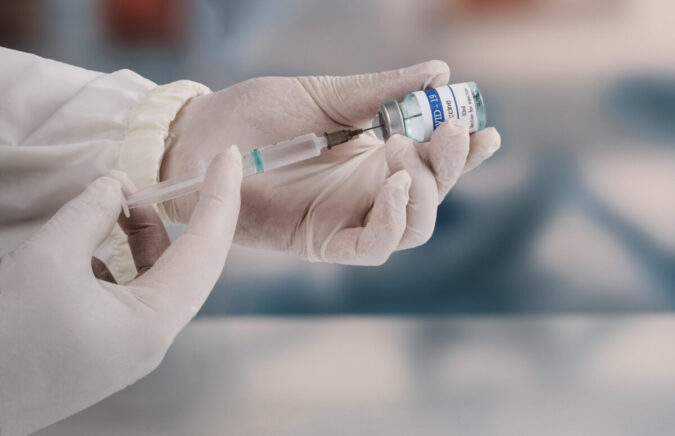A global study that looked at medical issues among nearly 100 million people who received the COVID vaccine found a higher-than-expected increase in neurological- and heart-related problems following the shot.
The Global Vaccine Data Network’s (GVDN) COVID Vaccine Safety study, which was the largest safety research conducted on COVID vaccines to date, found a higher risk of myocarditis than was expected from mRNA vaccines made by Pfizer, BioNTech, and Moderna, Bloomberg reported. The study also found an increased risk of a type of blood clot in the brain in people who received viral-vector vaccines, such as the one developed by the University of Oxford and produced by AstraZeneca.
“The size of the population in this study increased the possibility of identifying rare potential vaccine safety signals,” said Kristýna Faksová, the lead author of the study who works for the Department of Epidemiology Research at Statens Serum Institut in Denmark, according to The New York Post. “Single sites or regions are unlikely to have a large enough population to detect very rare signals.”
GVDN is a New Zealand-based group that describes itself as “a multinational, investigator-led research network with primary interests in the area of vaccine safety and effectiveness.” Researchers with GVDN looked at 13 medical conditions that they considered “adverse events of special interest” in 99 million vaccinated people throughout eight different countries: Argentina, Australia, Canada, Denmark, Finland, France, New Zealand, and Scotland. The study’s most consistent finding was inflammation of the heart muscle, also known as myocarditis, after each of the first three doses of mRNA vaccines, Bloomberg reported.
Researchers also found a “significant increase” increase in Guillain-Barre syndrome within the first 42 days of an initial AstraZeneca vaccine. Guillain-Barre syndrome is an autoimmune disorder where an immune system attacks its body’s nerves, according to the Mayo Clinic.
“In its most severe form Guillain-Barre syndrome is a medical emergency,” the Mayo Clinic says. “Most people with the condition must be hospitalized to receive treatment.”
The study then identified possible safety signals for spinal cord inflammation following viral-vector vaccine injections. Potential safety signals were also identified in the study for inflammation and swelling in the brain and spinal cord after both viral-vector and mRNA vaccines.
Jacob Glanville, the CEO of biotech company Centivaix, responded to the study’s findings, telling Fox News that while the vaccines have potential adverse effects, getting immunized against COVID is still the “safer choice.”
CLICK HERE TO GET THE DAILYWIRE+ APP
“This study is confirming in a much larger cohort what has been previously identified in the original studies during the pandemic — myocarditis and pericarditis as a rare side effect of mRNA vaccines and clots as a rare side effect of the viral vectored vaccines,” said Glanville, who was not involved in the study.
“The odds of all of these adverse events is still much, much higher when infected with SARS-CoV-2 (COVID-19), so getting vaccinated is still by far the safer choice,” Glanville added.
The GVDN study was published in the medical journal “Vaccine” last week. Nearly 14 billion doses of COVID vaccines have been administered globally since they were first rolled out in December 2020.
The World Health Organization and the Centers for Disease Control and Prevention continue to tout COVID vaccines as “safe and effective.” The WHO says that “In 2021 alone, COVID-19 vaccines saved an estimated 14.4 million lives worldwide,” and the CDC recommends that everyone six months and older receive the vaccine.
GVDN’s Global COVID Vaccine Safety Project is part of a larger initiative that is supported by the CDC and the Department of Health and Human Services, and several of the study’s authors receive financial support from federal government agencies, including the CDC, the New Zealand Ministry of Health, and the Canadian Institutes of Health Research, The Hill reported.
The outlet added that some of the study’s authors also reported having previously been paid by pharmaceutical companies Gilead Sciences Inc., AbbVie Inc., Pfizer, and GlaxoSmithKline.

